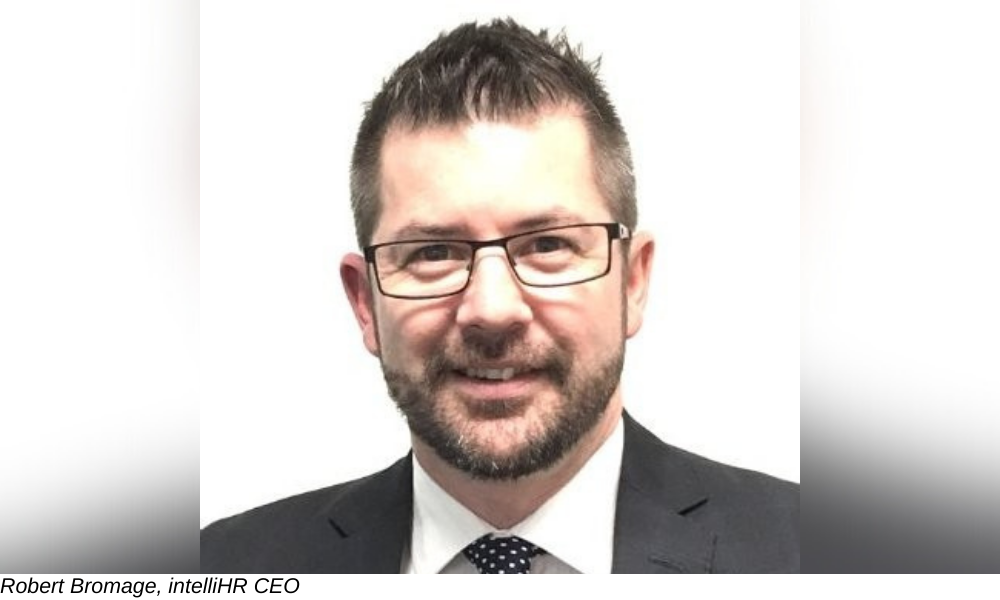
Founder Robert Bromage explains how his rapidly expanding company has achieved record growth during the pandemic

While many businesses have suffered or even shut down due to the COVID-19 pandemic, intelliHR is experiencing record growth.
The Australian HR technology company, which works with international brands like Pizza Hut and Fujista, reached over $7 million in revenue for the 2021 fiscal year.
“Essentially, we’ve doubled our customers every six months,” Robert Bromage, founder and CEO of IntelliHR, told HRD.
The company develops cloud-based people management software-as-a-service (SaaS). Its platform allows organizations to maintain a real-time handle on performance, create a culture aligned with business strategy and contribute to strategic decision-making with data-driven insights. Those services have been crucial as businesses transitioned from the office to working remotely.
Furthermore, Bromage says intelliHR made itself an “essential service,” creating a COVID-19 platform with working from home policies, documentation, processes, wellness checks and ways to improve communication between employers and employees.
“COVID made every single business realize employees are people,” Bromage says. “We went from not being sure if we were going to survive as a company to not being able to keep up with the demand. It’s been difficult from a leadership perspective, but I’ve been focused on protecting our company, thinking ahead and making sure we’re sustainable.”
Read more: intelliHR Performance Summit: The science of high-performing businesses
The Aussie has exemplified leadership skills throughout his nearly 35-year career, starting with the establishment of a Brisbane banking division of a global recruitment company. Then, he moved to Sydney and became the general manager of QPL Limited, a small niche specialist with additional offices in Brisbane and Melbourne. But with his first child on the way, he didn’t want to raise a family amongst the hustle and bustle of Sydney, so he moved back to Brisbane. However, that extended his commute, keeping him away from home two or three days every week.
With a master’s in business from Queensland University of Technology, Bromage realized the only way to solve his dilemma was to become an entrepreneur. Thus, he created APRG, a HR consultancy that helped businesses improve recruitment and retention. He built predictive models, conducting time and motion studies to understand what employees were doing and determine averages for poor and high performance. His clients were pleased, with 60% attrition rates dropping to merely 5%. As a result, companies were able to reduce the cost of hiring by progressing more employees up the ranks and bringing more entry-level people in.
In 2013, IntelliHR spawned from APRG, starting with less than a handful of people and growing to 97 employees around the world.
“It was seeing an opportunity,” Bromage says. “I wanted to be a global software company. Back then, HR software wasn’t really something. Everyone had a payroll system, but nobody had anything to support their people.”
Over the past two years, employees have needed support more than ever. They’ve had to work through fear of being infected with the coronavirus, concern for the safety of their loved ones and anxiety over the uncertainty of it all. The pandemic has taken a toll on mental health with employees reporting a 21% increase in burnout and 17% increase in physical symptoms of stress like muscle tension and fatigue, according to a survey by digital wellness company meQuilibrium.
Fatigue is one of the main contributors to the Great Resignation, in which a rapidly growing number of Americans have left their jobs. More than 4.4 million workers quit in September, 3% of the workforce, the U.S. Department of Labor reported. That tops the 4.27 million workers who quit in August. Since the pandemic began, workers have been demanding higher wages, better conditions and more mobility.
“There’s still a massive disconnection between employers and employees because they’re not seeing each other on a daily basis,” Bromage says. “Employers don’t really know how people have progressed in their careers or development since the pandemic. The biggest challenge is to get back to basics and reimagine how work will be moving forward.”